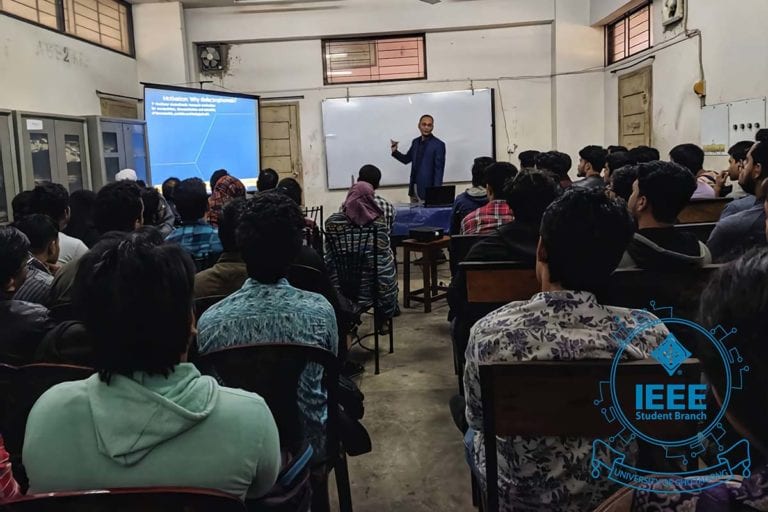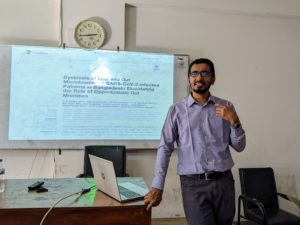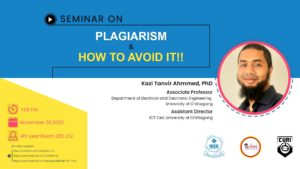
Seminar titled “Electric Field Guided Particle Manipulation for Biomedical Applications” is held on 5th January 2020.
Mohammad Robiul Hossan is the mechanical engineering program coordinator and an associate professor at the University of Central Oklahoma (UCO), Oklahoma, USA. His research focuses on the electrokinetic transport in microfluidics, design and development of biofluidic devices, and active and transformative learning in engineering education.
He has published more than 35 peer reviewed journal articles and proceedings with more than 100 technical presentations in conferences and technical meetings. Dr. Hossan received Oklahoma NIH-INBRE Research Opportunity Award in 2015, UCO faculty merit credit teaching award in 2016 and UCO faculty merit credit research award in 2017 and 2019.
In his session Dr. Robiul discussed about the application of electric field guided particle manipulation in biomedical application.Application of electric field has become one of the most promising actuation tools in microdevices for bioparticle manipulation, assembly and deformation. Electric field guided cell assembly and deformation involve complex multiphyics interaction among fluids, electric field and particles. A hybrid immersed interface-immersed boundary numerical scheme was developed where both electric and hydrodynamic forces are evaluated with interface-resolved approach. Immersed interface method is employed to evaluate electric field in fluids with submerged cells while immersed boundary method is used to study hydrodynamics with rigid and flexible immersed boundaries. Electric field induced force is calculated using Maxwell’s stress tensor method. The developed scheme was then used to study particle-particle interactions and assembly, particle trapping, cell deformation and Janus particle manipulations.The assembly and deformation process depend on the electrical properties of fluid as well as particles/cells.




